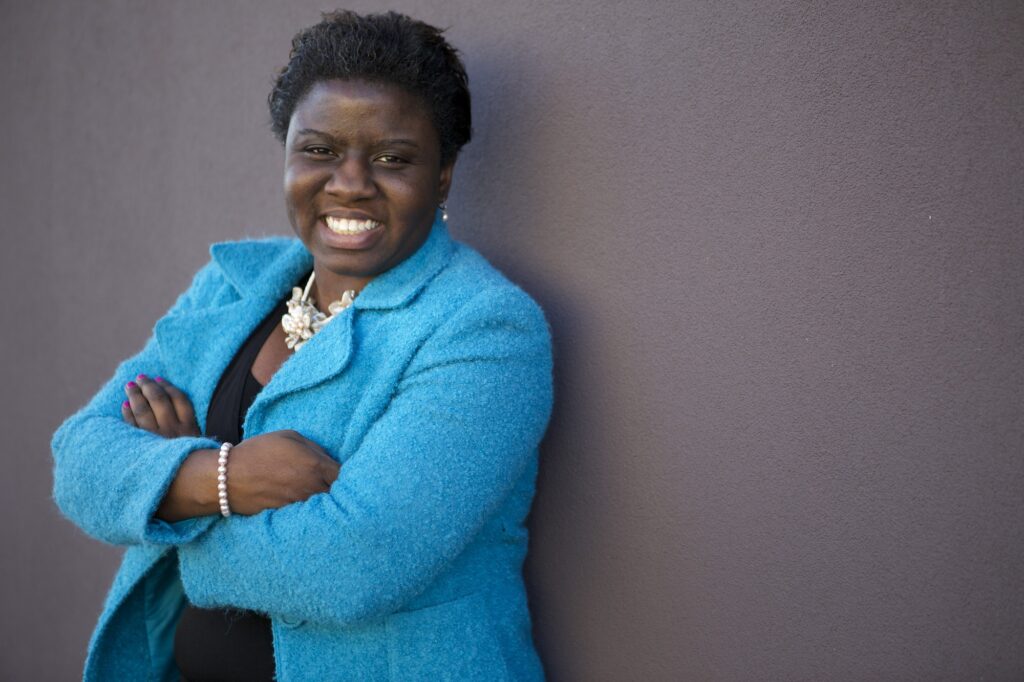Indira Henard ’03 lauded for work
 Rape crisis center executive director makes 2020 Washingtonians of the Year list
Rape crisis center executive director makes 2020 Washingtonians of the Year list
Washingtonian magazine, in December, published its list of 2020 Washingtonians of the Year. Those receiving the honor are described as locals who make Washington, D.C., “even better.” Indira Henard ’03, the executive director of the DC Rape Crisis Center, is among those who made the list, which includes the mayor of D.C.
The Washingtonian article featuring the winners described the start of Henard’s leadership of the center in 2016 as life saving—both for survivors of assault as well as for the organization, which was financially struggling.
“She acted quickly, securing multimillion-dollar funding, recruiting a brand-new board, overseeing a renovation and retiring the nonprofit’s debt. The swift reform was so impressive that Henard became a consultant for rape crisis centers nationwide and traveled abroad to open the first one in Lagos, Nigeria,” according to the article.
Henard majored in political science at Wheaton and earned a master’s degree in social work from the Catholic University of America. Currently, she is an alumni trustee on the Wheaton Alumni Board of Directors. She said she is deeply humbled to receive the recognition.
“This award is not only an affirmation of our work, and how tirelessly the staff at the DC Rape Crisis Center works on behalf of survivors of sexual violence, but it also represents the importance that the center has held in the Washington, D.C., community for the last 49 years,” she said.
Originally from Chicago, Henard has lived in Washington, D.C., for nearly 20 years. Currently, she is preparing for the center’s 50th anniversary celebration that will take place in 2022. The organization is the oldest rape crisis center in the country. Henard also is working on a project that examines the long-term reproductive health needs of Black women who are survivors of childhood sexual abuse.
Like other organizations maneuvering through the pandemic, the DC Rape Crisis Center had to quickly shift operations last spring. “We moved all of our services from in person to telehealth via a virtual platform. As a 24-hour direct service agency, our work does not stop in the midst of a pandemic,” she said.
“If anything we have seen a 50 percent increase in requests for individual and group services. One of the challenges we have worked through is making sure our clients have the necessary technology, such as iPads, to engage in therapeutic services with us. We did not want clients to have a disruption in their mental health services due to technology,” she said. “Fortunately, we were able to partner with some of our key funders to make sure they had access to technology to engage in services.”
